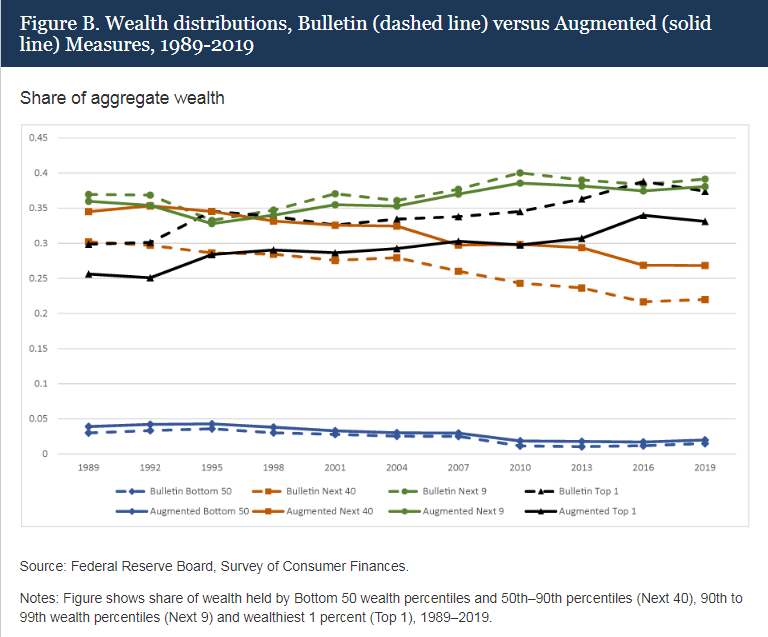https://www.wsj.com/articles/the-wealth-gap-shrinks-11601420393
According to an op-ed piece by the Wall Street Journal Editorial Board, the Federal Reserve has published a report (https://www.federalreserve.gov/econres/scfindex.htm, I believe, or https://www.federalreserve.gov/publications/files/scf20.pdf for a somewhat more readable version) indicating that the lowest-income households in the US increased in overall income and savings during the pre-pandemic Trump years while the wealthiest mostly stayed where they were or dipped a little. Is this an accurate description of the overall findings of the report? (For example, is this an accurate description overall, or are they carefully selecting the data points that support their argument while ignoring those that do not?) If so, how credible is the report itself?
Specific claims (about the period from 2016-2019) include:
- "middle- and low-income earners [have] benefitted tremendously over the last three years"
- "Median real incomes grew 5% from 2016 to 2019, the Fed reports,"
- "families at the top of the income and wealth distributions experienced very little, if any, growth in net worth between 2016 and 2019 after experiencing large gains between 2013 and 2016 while families near the bottom of the income and wealth distributions generally continued to experience substantial gains."
- "more broadly, the income gaps between families with a college degree and those without one decreased. Real median incomes grew 9% for Americans who haven’t completed high school and 6.3% for those with only a high-school diploma while declining 2.3% among those with a college degree."
Again, I am specifically interested in the following information.
- Does the Federal Reserve Survey of Consumer Finances 2019 essentially say these things?
- Is this an accurate description of the overall situation (that the wealth gap shrank during those years), or is the WSJ cherry-picking specific facts out of a larger survey to present a heavily biased picture?
- If that is generally what the survey says, is there any reason to doubt its accuracy?

